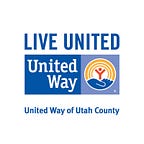3 questions to ask yourself before talking to your child about drugs
Parents are key to preventing drug use among youth
Starting a conversation about drugs with children can be difficult and awkward. However, strong relationships and communication between parents and children are some of the most important protective and preventative factors for drug use.
It may seem early, but starting these conversations with elementary school children is appropriate. Youth can begin experimenting with drugs and alcohol as early as elementary school, so this is a great time to establish clear communication about your family’s expectations.
Remembering your child’s needs
EveryDay Strong is a mental health initiative in Utah County that aims to give parents the tools they need to create meaningful relationships with their children, which in turn helps combat drug use. One important way to improve relationships is to focus on the needs of the child.
So what are those needs? Let’s recap Maslow’s Hierarchy:
1. The base is physical needs, which include basic needs such as food, water, or sleep.
2. The next portion is safety. This goes beyond physical safety, but emotional safety as well. Is the child safe to feel or fail? Are they safe to be themselves?
3. Next is connection. Do they have meaningful connections with the adults in their lives? Do they have friends or teachers who care about them?
4. After this is confidence. This is a child’s belief in their own abilities to be successful.
5. Once these needs are fully met, only then will a child thrive.
This perspective can be applied to all situations regarding our children and teenagers. When we’re faced with the challenge of talking to our children about drugs, here are three questions to ask yourself to ensure the conversation is positive for both parent and child.
3 questions to ask yourself before, and during, your conversations
Do they feel safe?
The best way to have an open and honest conversation about drugs with our children is to ensure they have a safe environment. This means that they are safe to express their concerns and questions without judgment. Providing this safe environment for them to completely be themselves, regardless of their mistakes, will foster an environment where our children feel like they can come to us about their struggles, instead of using unhealthy coping methods, such as drug use.
Do they have meaningful connections?
Authentic connection is necessary before our children can have a meaningful conversation with us. It is important to note that connection can take many forms. It does not have to be an expensive family vacation. Connection is the simple and consistent effort parents make each day to connect with that child.
Are they confident in their own abilities?
If a child has these three things, it is very likely that these difficult conversations will be a positive experience and bring parents and children closer together. It’s also more likely that they will follow the standards that you set as a family.
Consistent and early communication with our children is key to helping them resist using drugs. Focusing on the needs of our children will help these conversations to be more effective.
As we help our children feel emotionally safe, connect with them, and build their confidence, we can foster an environment that is conducive to preventing drug abuse — and ultimately building strong relationships.※
Originally published at https://www.heraldextra.com on October 27, 2019.
